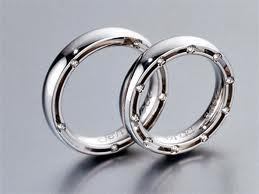What is Rhodium Plating?
Rhodium plating is a type of metal plating that prevents an object from being scratched or tarnished and improves the object’s color quality. Rhodium is a precious metal that is five to twenty-five times as expensive as gold and is used for plating jewelry and other objects in order to make them brighter, smoother, and last longer. It is too brittle to be made into solid jewelry, but rhodium plated gold or silver jewelry is much stronger and looks much better than their non-plated counterparts.
How Rhodium Plating Works
Typically, rhodium is used on rings, bracelets, necklaces, and other jewelry in order to increase the jewelry’s longevity and improve its quality. Though rhodium plating protects a piece of jewelry from being scratched or damaged, it eventually wears off because of skin contact and interactions with natural elements. As a result, rhodium plated jewelry must be plated every two to ten years, depending on how often the jewelry is worn. In a typical rhodium plating process, a piece of gold or silver jewelry is coated with a layer of nickel that protects the metal from the sulfuric acid in the rhodium bath. Next, the jewelry is dipped into the rhodium bath and allowed to solidify. The jewelry is then polished and given to the customer.
Applications
Although rhodium is most commonly used to plate jewelry, it can also be used for other purposes. Rhodium can be used on circuits and other metal objects to prevent corrosion and reduce the effects of high temperatures. It is also used to assemble complete items such as three-way catalytic converters, neutron detectors, and items such as pens and wires. Additionally, rhodium is used in electrical contacts, mammography filters, and aircraft spark plugs.
Advantages
Rhodium has several important advantages. It protects objects from corrosion, heat, and wear. It is chemically inert, meaning that it poses no threat to humans. Rhodium is also highly reflective and can withstand attack from most acids.
Disadvantages
Rhodium is extremely expensive and is one of the rarest metals in the world. Rhodium plating eventually wears away, requiring rhodium plated jewelry to be plated again. Also, rhodium mixed with other elements may cause the skin to change color.


Comments - No Responses to “What is Rhodium Plating?”
Sorry but comments are closed at this time.